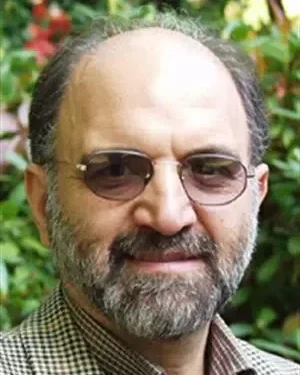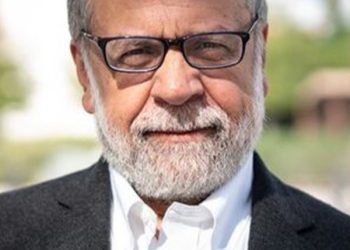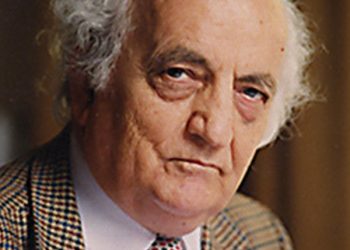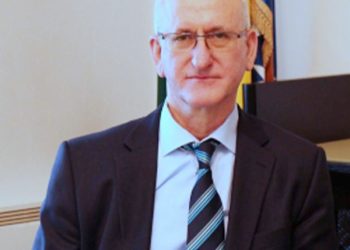Abdul Karim Suroush, also known as Hussein Haji Faraj Debbagh, was born in Tehran in 1945. He worked as a professor of philosophy at Tehran University and Imam Khomeini International University. He is an influential figure in the intellectual field in Iran. Prof. Suroush has also been a visiting scholar at Harvard, Princeton, Yale, Leiden and Columbia Universities outside Iran. In 2005, he was selected as one of the 100 most influential people in the world, and was also named one of the world’s most influential intellectuals by Prospect magazine. Surush, who has been compared to Martin Luther in his reinterpretation of Christianity, works on relativism under Islamic reform studies.
He supported Khomeini during the Iranian Islamic Revolution and was an important part of the Iranian reform movement. Suroush held various positions in the state and served as Khomeini’s cultural and educational advisor. However, Khomeini later withdrew his support and moved away from the notion of an Islamic state and adopted the concept of Islamic democracy. Suroush’s argument on the Qur’an and revelation is closely related to the issue of historicism. According to him, “people’s understanding of religion can be historical”. Because revelation is a product of the prophet’s unique experience, the Qur’an is a product of historical events and situations. With these thoughts, Suroush belongs to a group that includes people such as Nasr Hamid Abu Zayd and Muhammad Arkun who defend the historicity of the Qur’an.
According to Suroush, the Prophet is an instrument, he conveyed the revelation that Gabriel delivered to him (Sifil, 2008). However, the point he draws attention to here is that the Prophet’s influence on the Qur’an is important since revelation is difficult to understand and comes from God in a formless and unique way. His general philosophical stance emphasizes the distinction between “religion” and “people’s understanding of religion”. He also argues that there is a distinction between religion in the sense of truth and ideological and identity-based religion. It is seen that Surush’s political philosophy approaches liberalism. He put forward the concept of “religious democracy” as a concept that aroused interest in the Iranian intellectual community and proposed a new definition at this point. According to him, religious democracy is a concept that can be defined within modern rationality.
There is a great reaction from theologians to Suroush who states that religion is a humanmade in nature. After completing his education, he wanted to continue his studies outside Iran and went to London to get to know the West better. He did his master’s degree in analytical chemistry and worked in various schools in England. After the 1979 Iranian Revolution, he returned to Iran and published his book Knowledge and Value, which he had started writing in London. He was then appointed director of the Islamic Culture group, where he studied history and philosophy of science. In the 90s, he attracted attention in the Iranian intellectual community with short articles on tafsir, pluralism, etc. in the magazine Kiyan, of which he was one of the founders.
In 1998, by order of the president of the Islamic Republic, Kiyan magazine, like many other magazines, was shut down and Suroush was subjected to various censorships. This was because he took an oppositional stance in social, political and religious terms. In 2000 he lectured at Harvard University on the poetry and philosophy of Mawlana, democracy and Islam, and Islamic law, and in 2002 and 2003 he lectured at Princeton University on Islamic political philosophy. He has lectured widely on religion and philosophy in Berlin between 2003 and 2004, at Columbia University in 2007, at Georgetown University in 2008, and at the University of Chicago in 2012.
References
Abdülkerim Süruş. (n.d.). Mana Yayınları. http://www.manayayinlari.com/yazar/abdulkerim-surus-97
Karaman, H. (2015). Abdülkerim Süruş. Yeni Şafak. https://www.yenisafak.com/yazarlar/hayrettin-karaman/abdulkerim-suru-2019901
Sifil, E. (2008). Abdülkerim Süruş: Modern Bir Savruluş-1. https://ebubekirsifil.com/gazete-yazilari/abdulkerim-surus-modern-bir-savrulus-1/













































